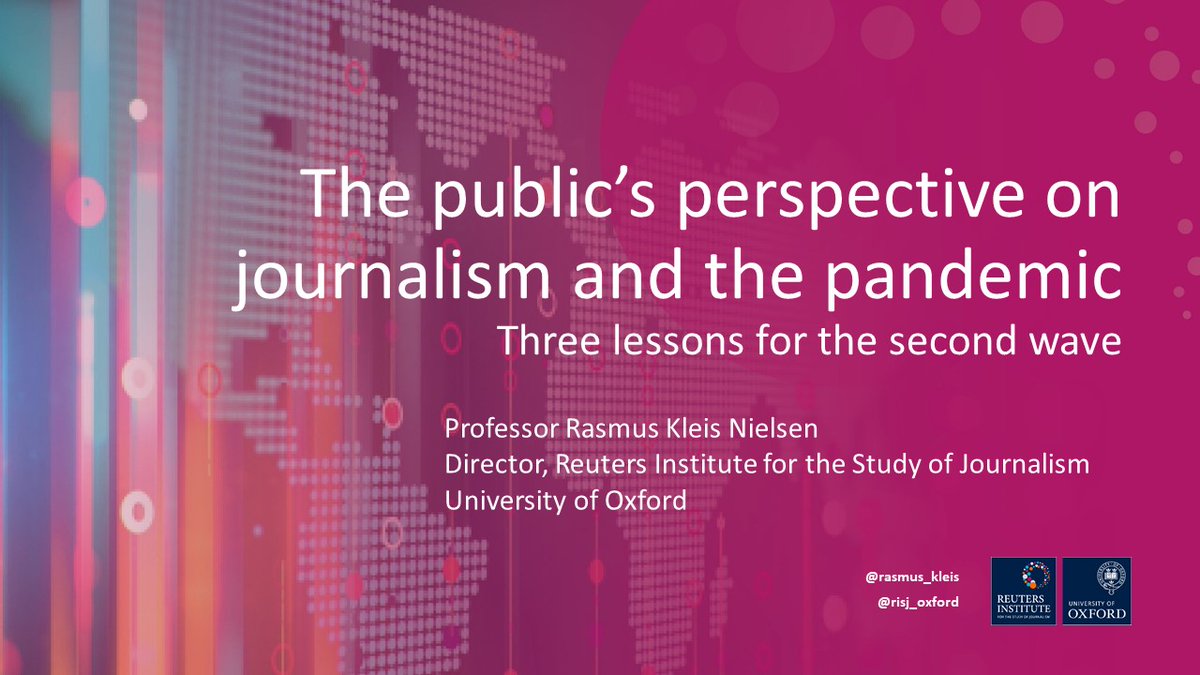
So, yesterday the @EU_Commission published its action plan with proposals to "Support Recovery and Transformation" in European media, including news.
Sprawling plan for sprawling industry estimated at €193b/year, of which news publishers only a small part.
A few highlights 1/9
Sprawling plan for sprawling industry estimated at €193b/year, of which news publishers only a small part.
A few highlights 1/9

One ambition is to foster investment by creating "MEDIA INVEST", with a target "to leverage investments of €400 million over a 7-year period" in hope of "making a significant contribution to addressing the gap in equity financing" (to help transform a €193b/year industry)
2/9
2/9
Also, more money for "Creative Europe programme" to €2.2b in 2021-2027 budget (so €300m/year), and "pending finalisation of negotiations, the programme will include for the first time actions focused on media freedom and pluralism, journalism, and media literacy." Exciting! 3/9
And lots of nudges to member states (EU budget ~€160b/year, member states ~€7 trillion/year) e.g. "Member States should pay attention to sectors that play a key role for our democracies" and provide support "in a way that respects and promotes media freedom and pluralism" 4/9
Then this rather opaque bit "Commission will launch a ‘NEWS’ initiative to bundle actions and support to the news media sector [and] will look holistically at the challenges facing the news media industry and provide a coherent response" Is this policy-speak for "more later"? 5/9
How will it be governed? Corporatism. EC to establish "European News Media Forum to engage with stakeholders, including media regulatory authorities, representatives of journalists, self-regulatory bodies (media/press councils), civil society, and international organisations" 6/9
Also, ambition to create a "European “media data space”", ("in full respect of data protection legislation") supported through "pro-competitive" industry collaboration including both for-profit and public service and money from Horizon Europe and Digital Europe Programmes 7/9
"More research is needed" (true). EC "will procure a report, the ‘Media Industry Outlook’ [to] explore media trends–from technology advances to emerging production and consumption patterns–and analyse their potential impact in the European media market and business models" 8/9
Aaand an old favorite: EC "will support research and innovation for advanced methods of search, discovery and aggregation, in order to facilitate the creation of independent alternative news aggregation services capable of offering a diverse set of accessible information" 8/9
And of course media literacy.
So - a bit of money, encouraging collaboration, institutionalization of corporatist approach (politics will be complicated), and maybe more to come under "NEWS" initiative. Plus: "over to you, Member States".
Not nothing, but not transformative 9/9
So - a bit of money, encouraging collaboration, institutionalization of corporatist approach (politics will be complicated), and maybe more to come under "NEWS" initiative. Plus: "over to you, Member States".
Not nothing, but not transformative 9/9
• • •
Missing some Tweet in this thread? You can try to
force a refresh












